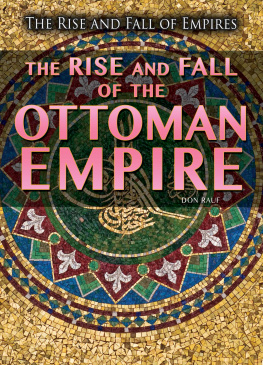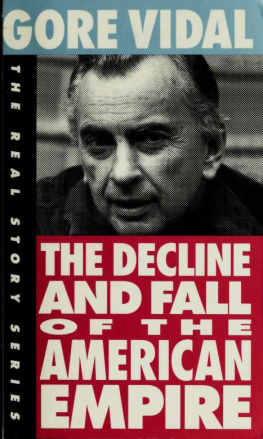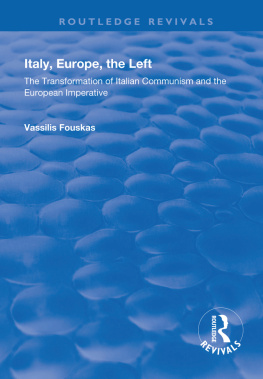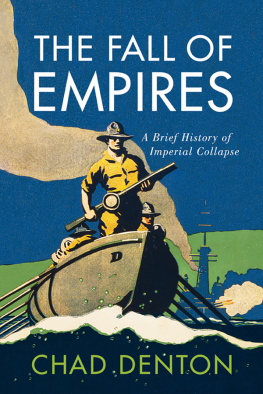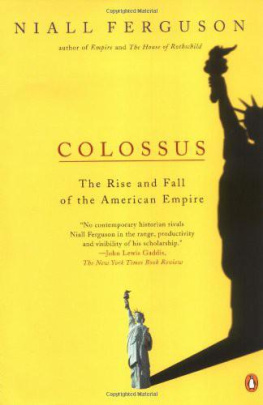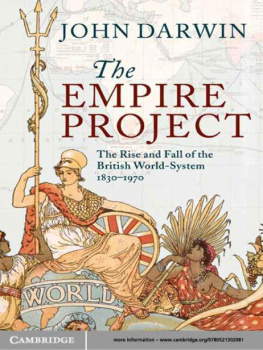Vassilis K. Fouskas is Professor of International Relations at Richmond University, London, and the founding editor of the Journal of Balkan and Near Eastern Studies (quarterly). He is the author of Cyprus: The Post-Imperial Constitution (with Alex O. Tackie, 2009), The New American Imperialism (with Blent Gkay, 2005), The Politics of Conflict (editor, 2007, 2010), Zones of Conflict (2003) and Italy, Europe and the Left (1998). He is an editor of globalfaultlines.com and a member of the editorial board of Debatte.
Blent Gkay is Professor of International Relations and Head of the School of Politics, International Relations and Philosophy at Keele University. He is the author of The Politics of Caspian Oil (2001), Eastern Europe Since 1970 (2005, 2006), Soviet Eastern Policy and Turkey, 19201991 (2006), Politics of Oil A Survey (2007), and Muslims and Communists in Post-Transition States (with Ben Fowkes, 2011). He is the founder and managing editor of globalfaultlines.com
First published 2012 by Pluto Press
345 Archway Road, London N6 5AA
www.plutobooks.com
Distributed in the United States of America exclusively by
Palgrave Macmillan, a division of St. Martins Press LLC,
175 Fifth Avenue, New York, NY 10010
Copyright Vassilis K. Fouskas and Blent Gkay 2012
The right of Vassilis K. Fouskas and Blent Gkay to be identified as the author of this work has been asserted by them in accordance with the Copyright, Designs and Patents Act 1988.
British Library Cataloguing in Publication Data
A catalogue record for this book is available from the British Library
ISBN 978 0 7453 2644 3 Hardback
ISBN 978 0 7453 2643 6 Paperback
ISBN 978 1 84964 658 1 PDF
ISBN 978 1 84964 660 4 Kindle
ISBN 978 1 84964 659 8 ePub
Library of Congress Cataloging in Publication Data applied for
This book is printed on paper suitable for recycling and made from fully managed and sustained forest sources. Logging, pulping and manufacturing processes are expected to conform to the environmental standards of the country of origin.
10 9 8 7 6 5 4 3 2 1
Designed and produced for Pluto Press by Curran Publishing Services, Norwich. Simultaneously printed digitally by CPI Antony Rowe, Chippenham, UK and Edwards Bros in the United States of America
ACKNOWLEDGEMENTS
Vassilis K. Fouskas would like to thank:
All the participants in the Richmond University colloquium on Understanding the Global Financial Crisis (March 2011), especially Robert Wade (LSE), Costas Lapavitsas (SOAS, University of London), Stephen Haseler (London Metropolitan University) and Engelbert Stockhammer (Kingston University).
The librarians at Richmond University; my students at Richmond, especially Stefan Kurtev Atanasov, and my colleagues, especially the teaching team of our MA in IR. In particular, I would like to thank my colleagues Alex Seago and Wolfgang Deckers. Thanks are also due to Martin Winter in Richmonds reprographics, for tirelessly producing draft copies of the manuscript during a hot London summer, and Tryfon Chiotis and Kalliopi Moumgi of the Citizens Advice Bureau, Petra, Lesvos, for the same reason (but this time the heat was in Greece).
Kees van der Pijl (Sussex University) for many discussions on the financial crisis and for his contribution to the December 2009 Athens workshop on the financial crisis held in honour of Peter Gowan.
Alex Tackie (Kingston University) for endless discussions on critical and heterodox political economy matters since 1999, and for reading the entire first draft of this work, helping me to deal with problems I was blind to.
Donald Sassoon for being a constant source of advice for 20 years now, and for asking me frequently to review key books in IR for the Political Quarterly.
The editorial teams of the Journal of Balkan and Near Eastern Studies (Routledge, quarterly) and Global Fault-lines (an online publication initiated by my visionary co-author and long-time academic collaborator).
Participants in workshops and discussion groups at venues, such as the Graduate Center (CUNY), Woodrow Wilson Center and the Program in Hellenic Studies (Princeton University), SOAS (especially the annual Historical Materialism Conference), Goldsmiths University of London, Queen Mary University of London, LSE (especially the 2011 Millennium Conference), and Sussex University (especially the workshop organized by Justin Rosenberg under the auspices of BISAs historical sociology group).
Last but not least, my wonderful, appreciative and tolerant wife, Maritsa V. Poros (City College, CUNY), for having to persevere with motherhood without the father, yet actively encouraging me and inspiring me with countless discussions and advice, both social and scholarly, in order to write a good book with Blent.
Blent Gkay says:
This book has long been in the making. Vassilis and I began to discuss in the 1990s aspects of the US global hegemonic system in our various joint articles and seminars. Since this time I have personally benefited from the assistance, ideas and enthusiasm of so many people, who have shared my interests in the global political economy and the rise and fall of hegemonic systems. I cannot attempt to thank all of them, but here, briefly and incompletely, is an attempt to thank some of those sources of inspiration and friendship.
Ben Fowkes my tutor, mentor and close friend since the 1980s has consistently been most generous with his time, knowledge, materials and support. I owe a great debt to his works on modern history, in particular his work on the late communist and post-communist period.
I acknowledge a very special debt of gratitude to Darrell Whitman, my colleague and friend, for many hours of invaluable intellectual companionship, which has played a huge role in shaping my ideas and writing about global fault-lines over the last ten years. Special thanks are also due to Vildan Serin, whose fantastic advice on many aspects of the history of finance and economics added much to the development of my understanding of these issues. My colleagues in SPIRE and my students in my IR of Eurasia class at Keele University over the last four years have been a great source of inspiration with their sharp observations, for which I thank them individually and collectively.
Above all I would like to thank my family who make everything possible: my daughters Ada, Leyla and Saira whose love and support made this project even more enjoyable; and Farzana for her continued encouragement, and keen editorial eye, which made all the difference.
Joint comments:
We both are solely responsible for the arguments advanced in this book. We have decided to dedicate this, our second joint book, to Peter Gowan. Peter prefaced our first work The New American Imperialism (2005). Since the early 1990s, he has been a constant source of inspiration for us, a scholar of high calibre and moral standards, whose immense intellectual powers have been, among others, in the right services of educating youth against the obscurantism of nationalisms and imperialisms of all sorts.
We also thank Susan Curran and her team at Curran Publishing Services Ltd for their work on the book.


